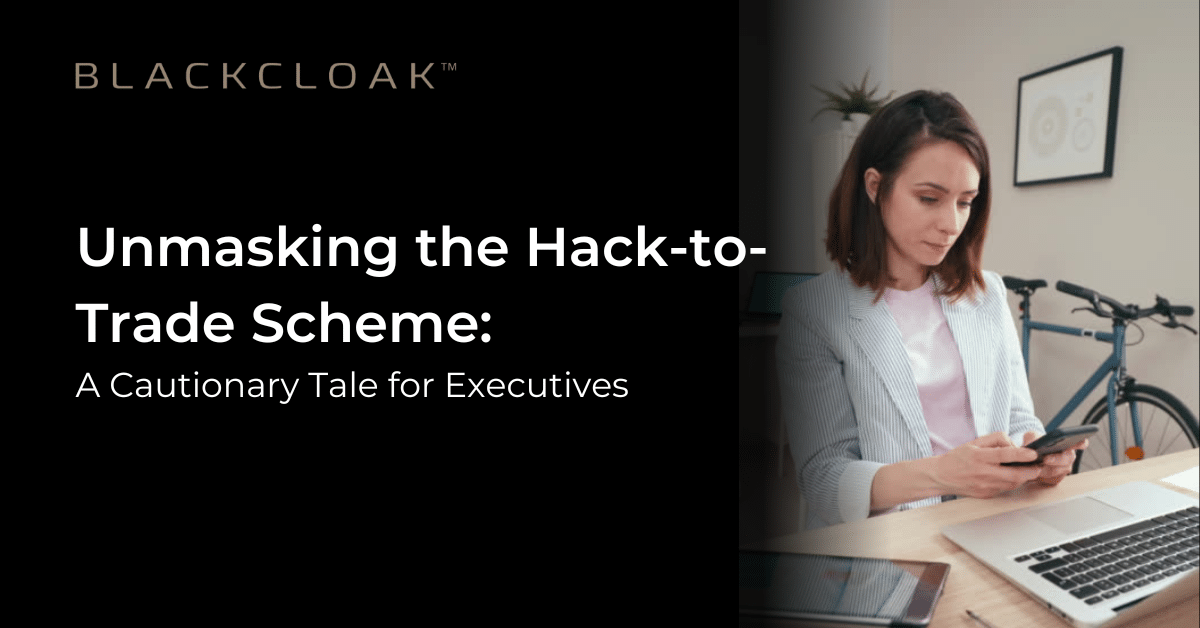Unmasking the Hack-to-Trade Scheme: A Cautionary Tale for Executives

In a shocking revelation, federal prosecutors have charged UK national Robert B. Westbrook with orchestrating a sophisticated “hack-to-trade” scheme that netted him millions of dollars. By exploiting vulnerabilities in Office365, Westbrook allegedly gained unauthorized access to the email accounts of executives at five publicly traded US companies, obtaining sensitive financial information before it was publicly released. This breach underscores the critical need for robust cybersecurity measures, especially for high-level executives.
The Scheme Unveiled
Westbrook’s method was alarmingly simple yet devastatingly effective. By abusing the password reset mechanism in Office365, he gained access to executives’ email accounts. Once “inside,” he set up auto-forwarding rules to send all incoming emails to an account he controlled. This allowed him to monitor and act on non-public financial information, executing stock trades that capitalized on the advance knowledge.
Financial Gains and Legal Consequences
Between 2019 and 2020, Westbrook allegedly earned approximately $3.75 million through his illicit activities. By predicting stock performance based on the confidential information he accessed, he strategically placed “put” options to profit from declining stock prices and bought shares at low prices to sell them high after positive financial results were announced.
The US Attorney’s Office for the District of New Jersey has charged Westbrook with multiple counts, including securities fraud, wire fraud, and computer fraud. If convicted, he faces severe penalties, including up to 20 years in prison and substantial fines.
The Role of the SEC
The US Securities and Exchange Commission (SEC) has also filed a civil suit against Westbrook, seeking to impose civil penalties and recover all ill-gotten gains. The agency’s responsibility is to protect markets and investors from cyber fraud such as this one.
What Does this Mean for Companies and Their Executives
Executives are often targets for cybercriminals because they are imbued with substantial responsibilities and access as agents of their companies. Even with the most sophisticated corporate cybersecurity measures in place, breaches take place when executives and their families are targeted and the fallout can be devastating.
In this instance, the cybercriminal was able to manipulate a well established corporate email system to gain access to the company’s sensitive information over a significant period of time. But let’s suppose that instead of accessing the corporate email system, Westbrook was able to do what he did to the executives’ personal email, which often do not have the same corporate cyber protections. Not only could he then access the executives’ home network, but all of the other digital channels that home network comes into contact with: business email, financial accounts, insurance information, social media accounts, applications, and much more. The damage would not have been limited to investment fraud, but it could have caused havoc on the personal lives of those executives as well.
This case serves as a stark reminder of the vulnerabilities that exist within corporate and personal email systems and the lengths to which cybercriminals will go to exploit them. Executives must prioritize cybersecurity measures, including:
- Using multi-factor authentication on all email.
- Monitoring email account activity for unusual behavior and access.
- Implementing strict access controls and regularly reviewing forwarding rules.
- Educating their employees about the risks of cyber fraud and the importance of cybersecurity best practices.
The Westbrook case highlights the critical importance of cybersecurity in protecting sensitive financial information and maintaining the integrity of the personal digital footprint. As cyber threats continue to evolve, companies and executives must remain vigilant and proactive in safeguarding their digital assets. By learning from this incident, executives can better protect themselves and their organizations from similar threats in the future.
For more information on how BlackCloak can help protect your personal digital lives, contact us.









